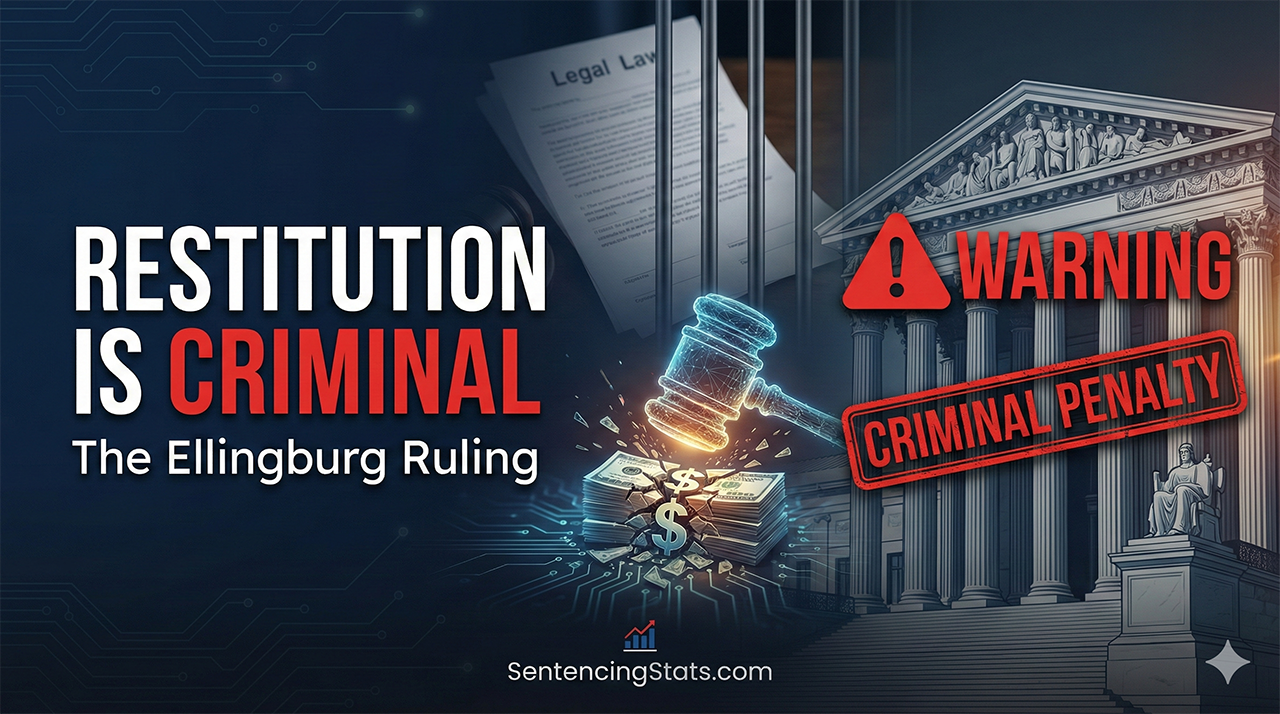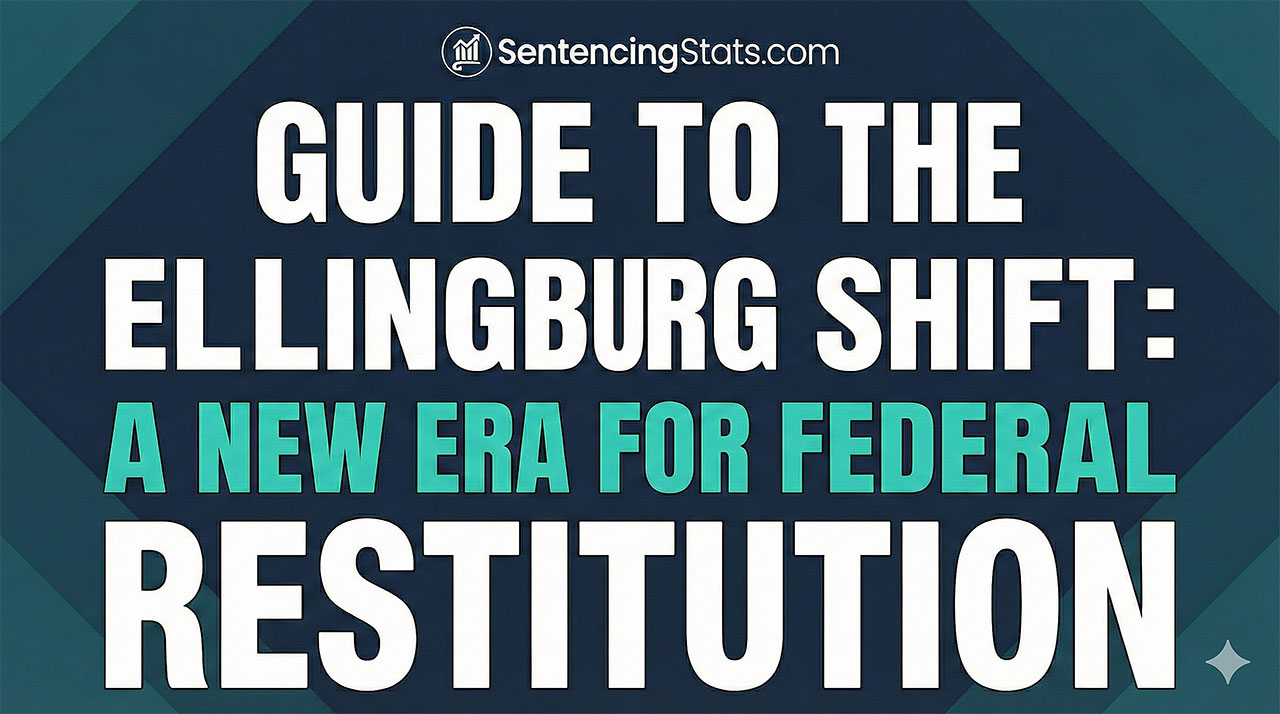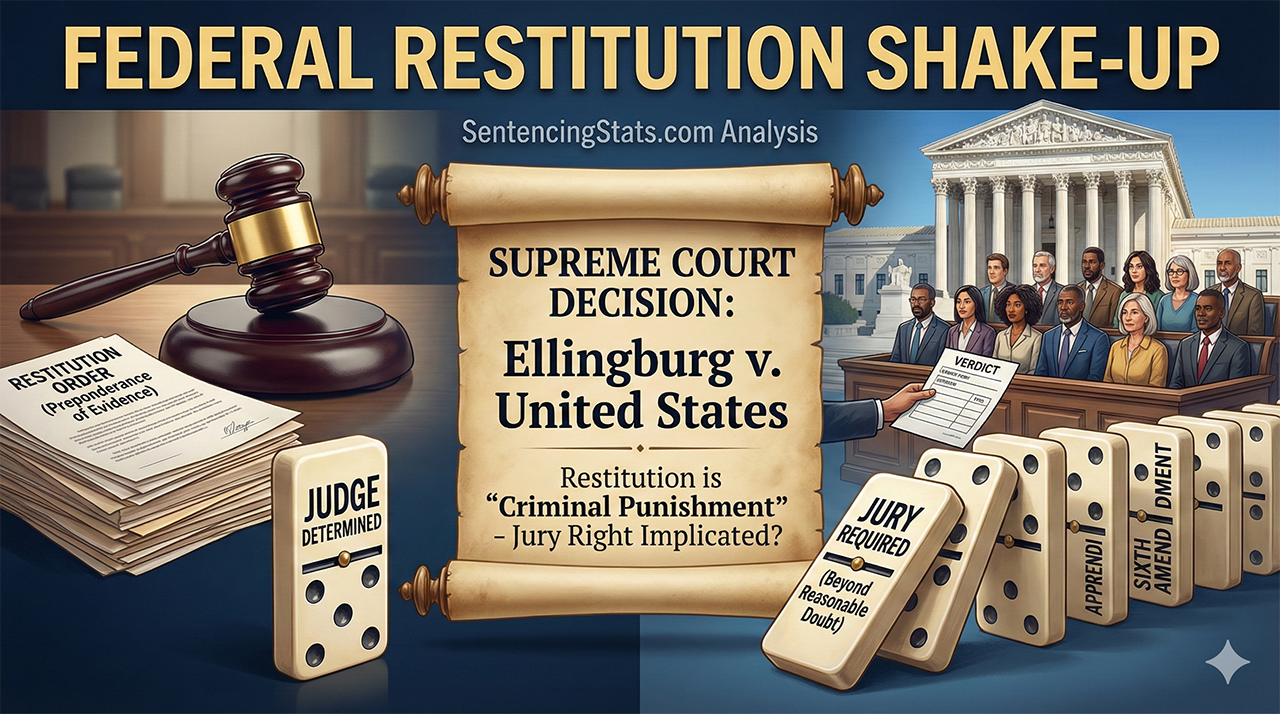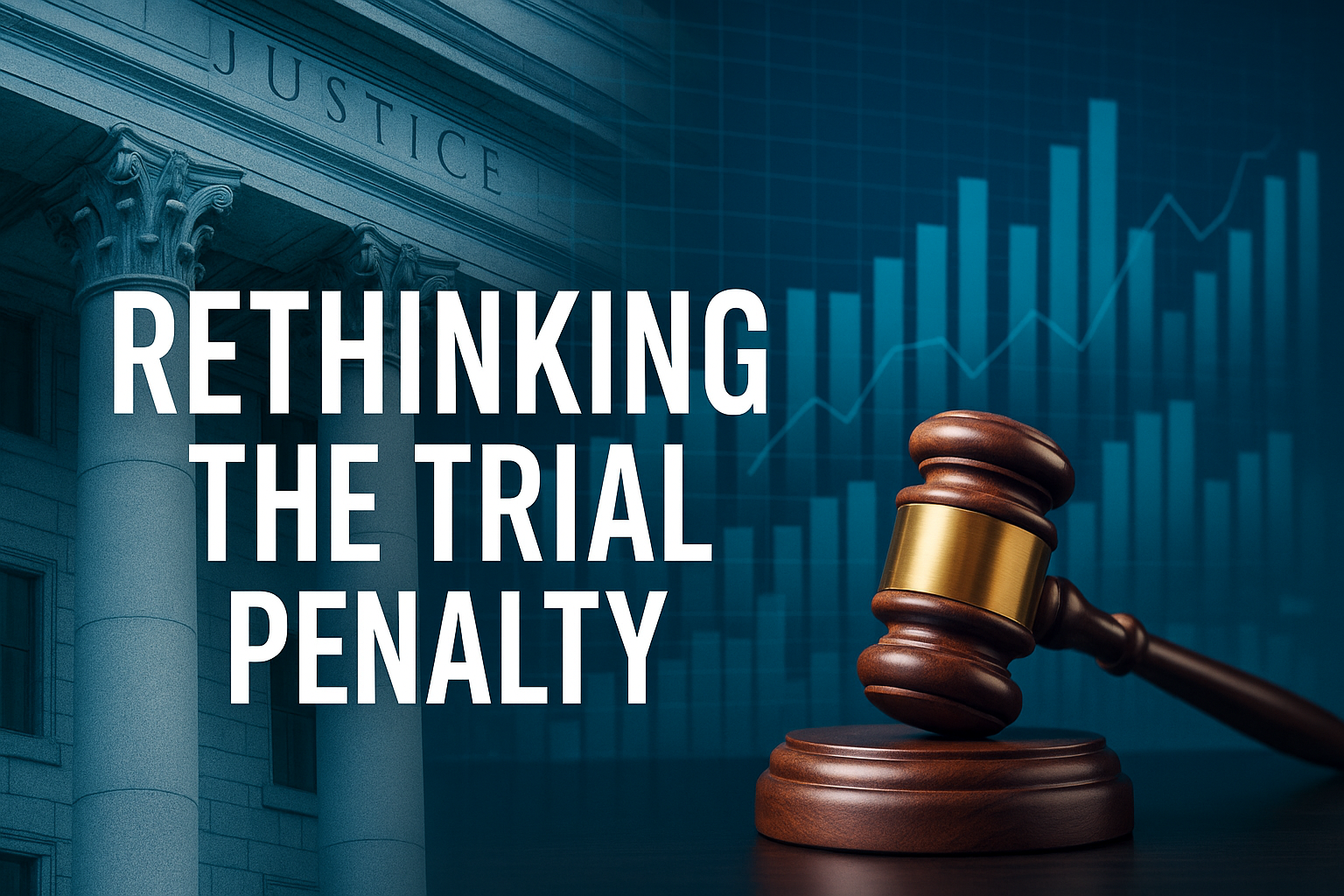SentencingStats.com Joins Microsoft Partner Program and Secures $250K in Azure Support
SentencingStats.com Selected for Google Cloud for Startups Accelerator – Secures $25K Grant


SentencingStats.com Joins Microsoft Partner Program and Secures $250K in Azure Support

SentencingStats.com, the leading platform for federal sentencing analytics and research, is proud to announce the appointment of former U.S. District Judge and Harvard Law Professor Nancy Gertner to its Advisory Board.

In a unanimous decision on January 20, 2026, the Supreme Court fundamentally altered the landscape of federal sentencing. By ruling in Ellingburg v. U.S. that restitution is “plainly criminal punishment,” the Court has opened the door to significant due process challenges. In this article, originally published in Law360, we explore why the “Wild West” of restitution is over and how defense counsel can use this ruling to demand jury findings and stricter evidentiary standards.

The Supreme Court’s recent ruling in Ellingburg v. U.S. has complex implications for every federal criminal case involving financial loss. To help you visualize this seismic shift, we’ve created a new infographic: “The New Ellingburg Rule Explained.” This visual guide maps out the transition of restitution from a civil remedy to a criminal penalty, highlighting the new “Apprendi dominoes” that defense counsel can leverage to demand jury findings and higher standards of proof.

In a unanimous ruling, the Supreme Court’s Ellingburg decision has reclassified restitution as “plainly criminal punishment,” ending its treatment as a civil remedy. Our latest Law360 article explores how defense counsel can now demand Sixth Amendment protections—including jury findings and stricter evidentiary standards—to challenge restitution orders in federal sentencing.

SentencingStats.com Joins Microsoft Partner Program and Secures $250K in Azure Support

So today, we celebrate the death of guideline departures, lament the death of due process in immigration, and worry for the future of this democracy.

So today, we celebrate the death of guideline departures, lament the death of due process in immigration, and worry for the future of this democracy.

Will the U.S. Sentencing Commission remove “Departures” from the Sentencing Guidelines and direct court to only consider Variances under 18 U.S.C. 3553(a)?

SentencingStats.com, a leader in federal sentencing and prison analytics, today announced its acceptance into NVIDIA Inception, an exclusive accelerator supporting startups at the forefront of artificial intelligence, data science, and high-performance computing. This partnership underscores SentencingStats’ commitment to transforming federal sentencing into a more equitable and transparent process through advanced machine learning capabilities.